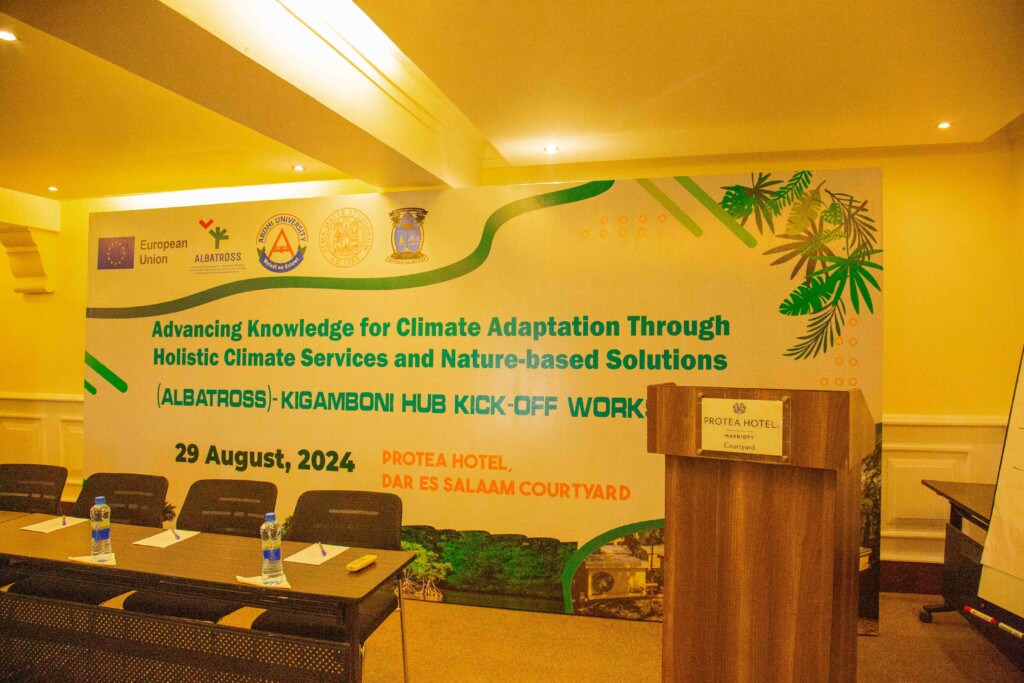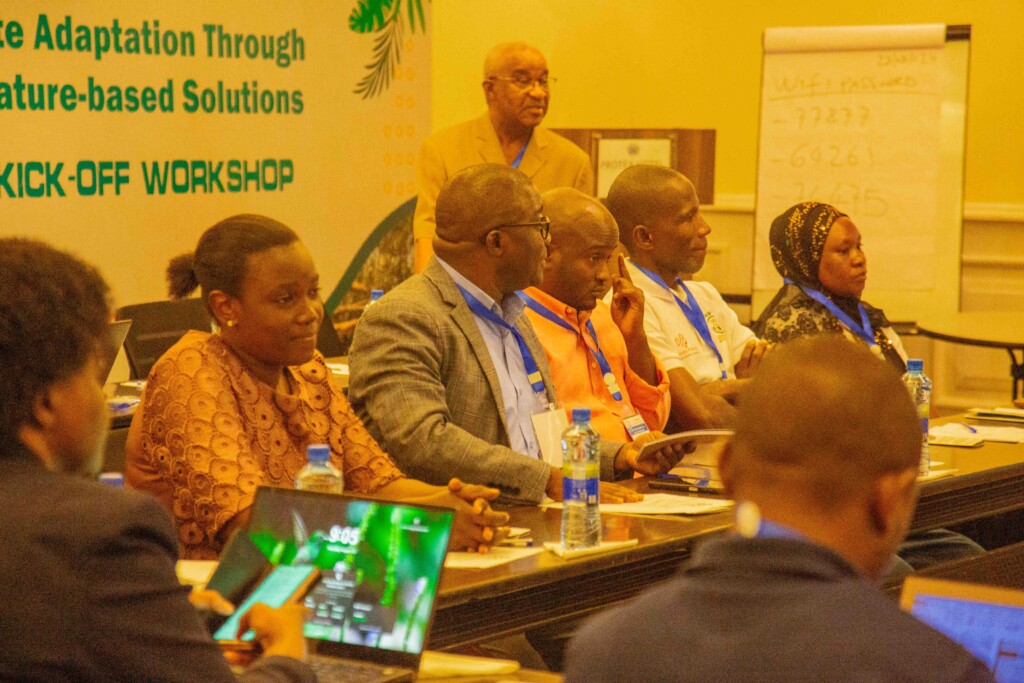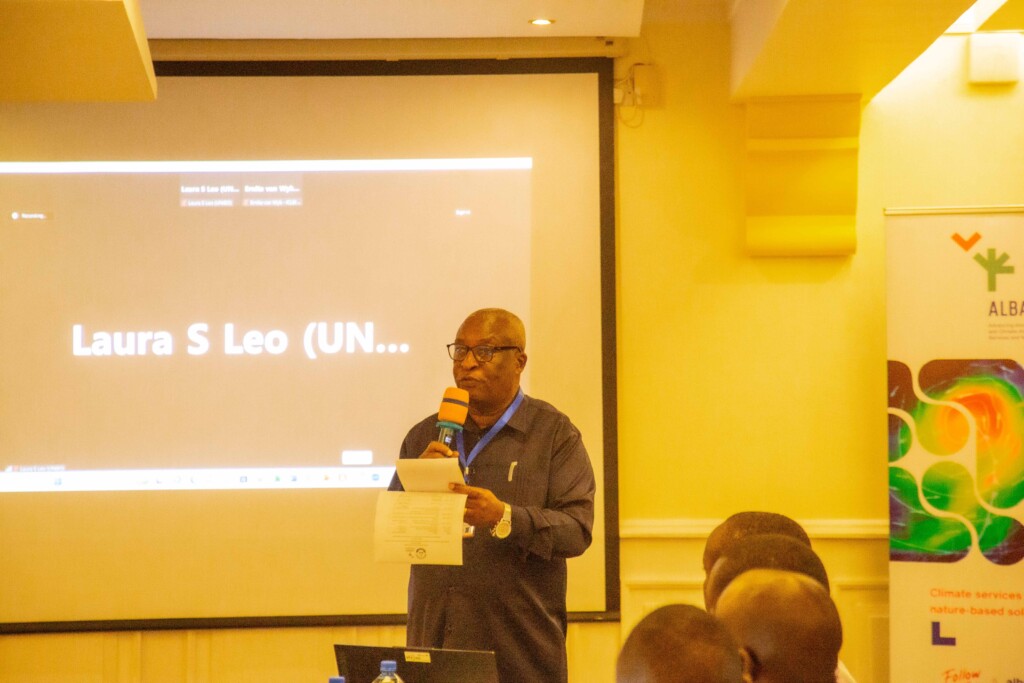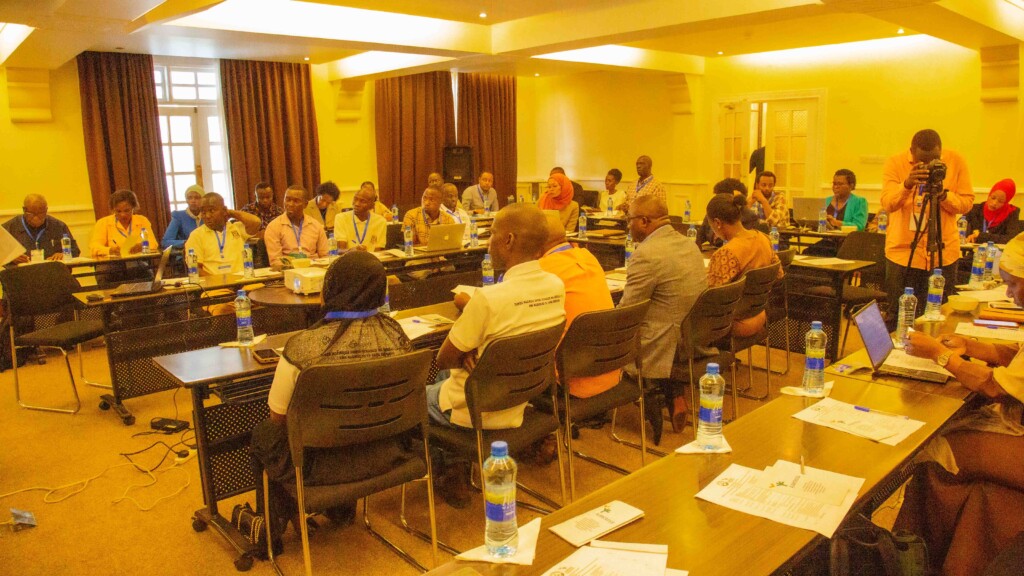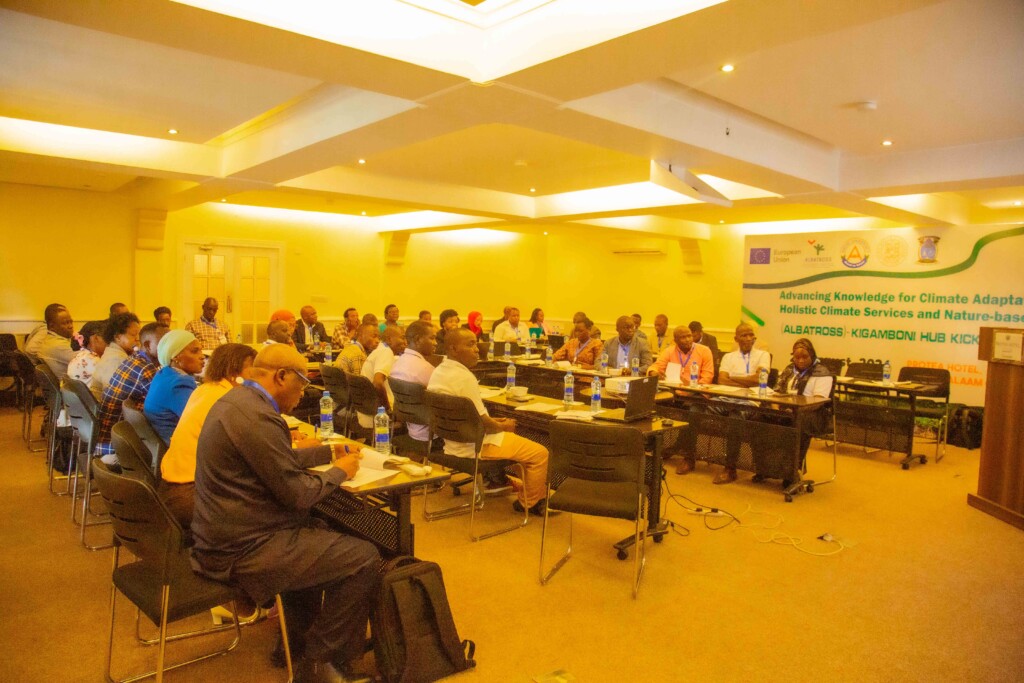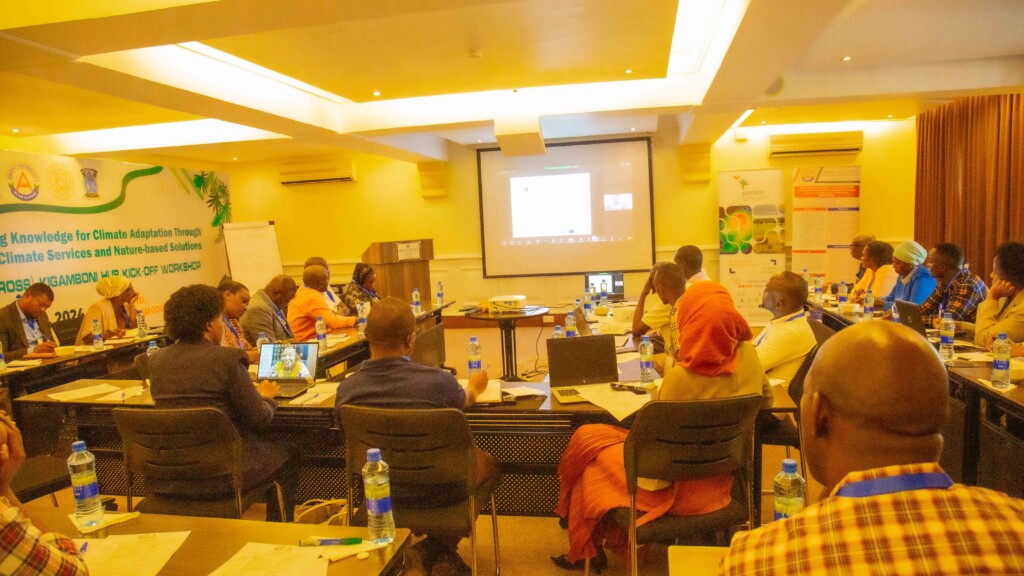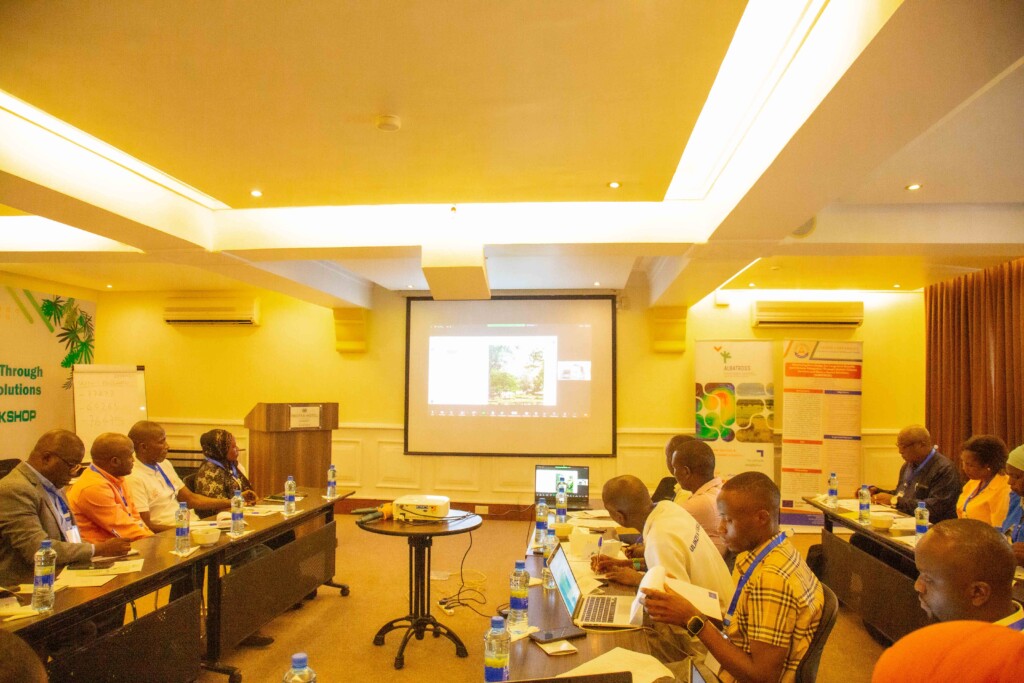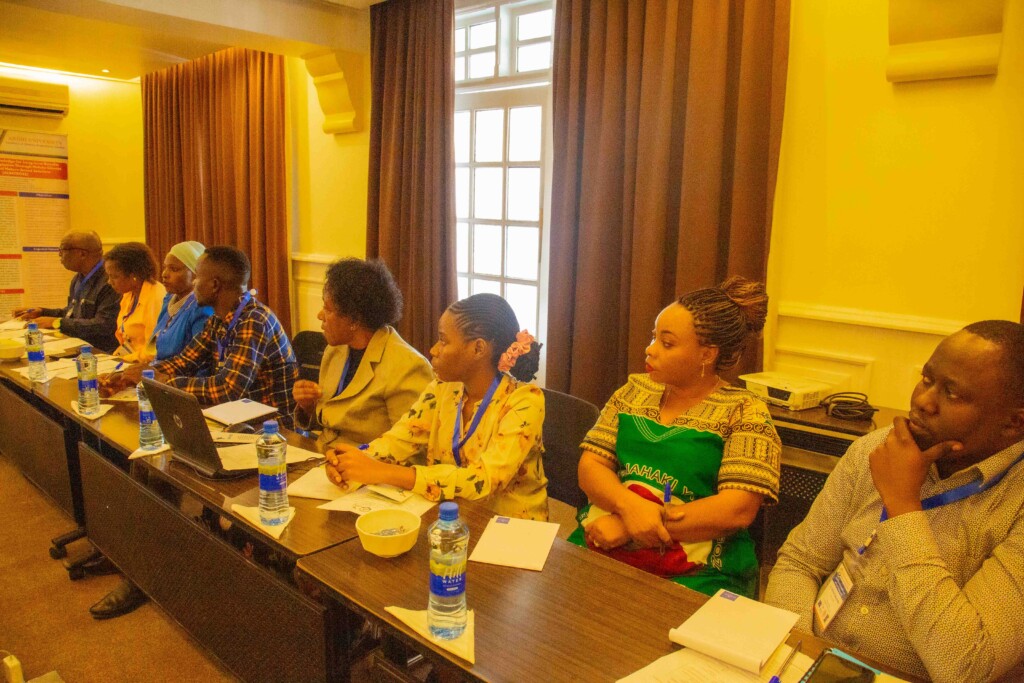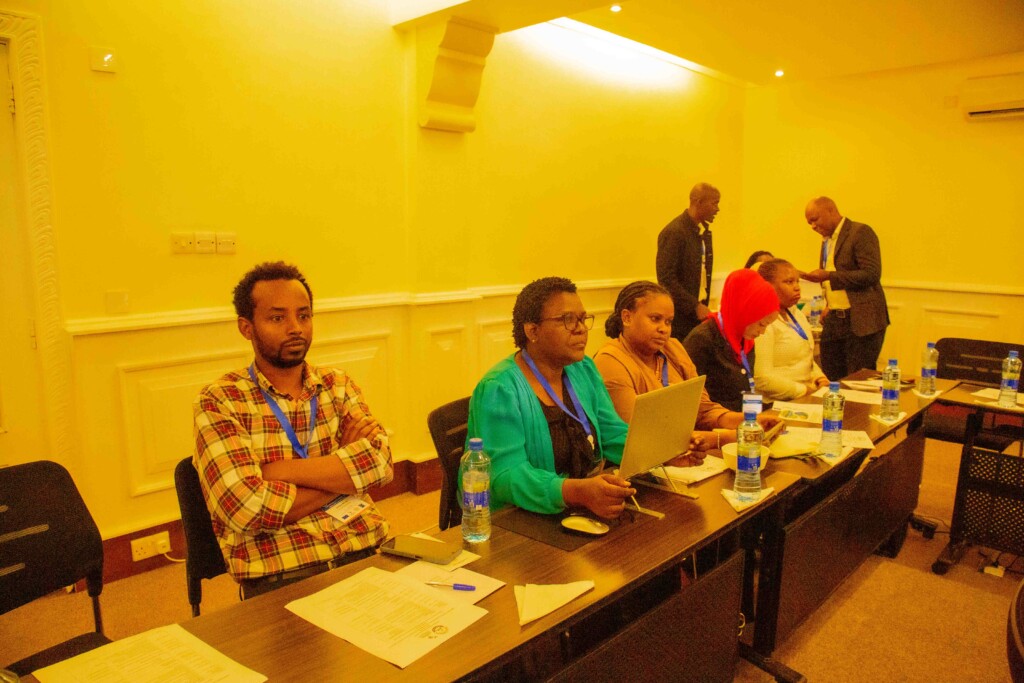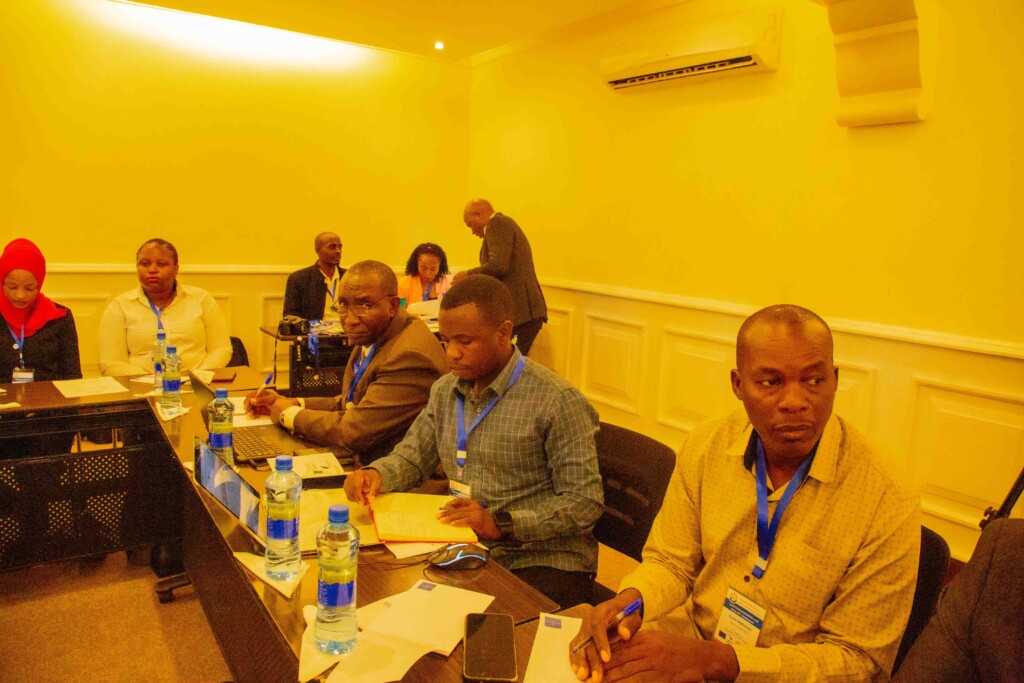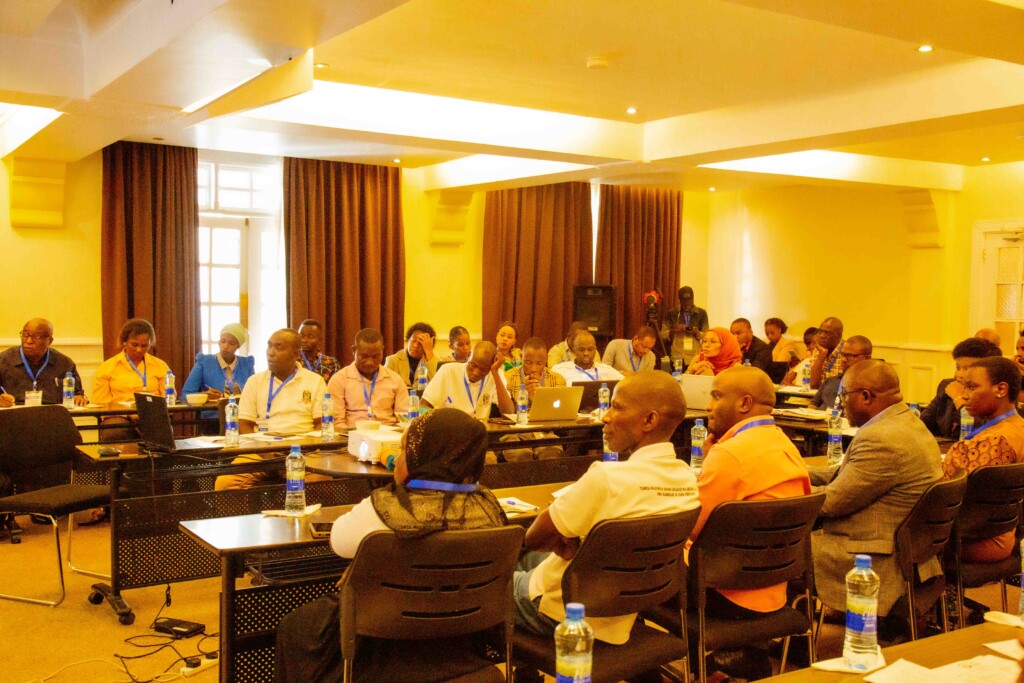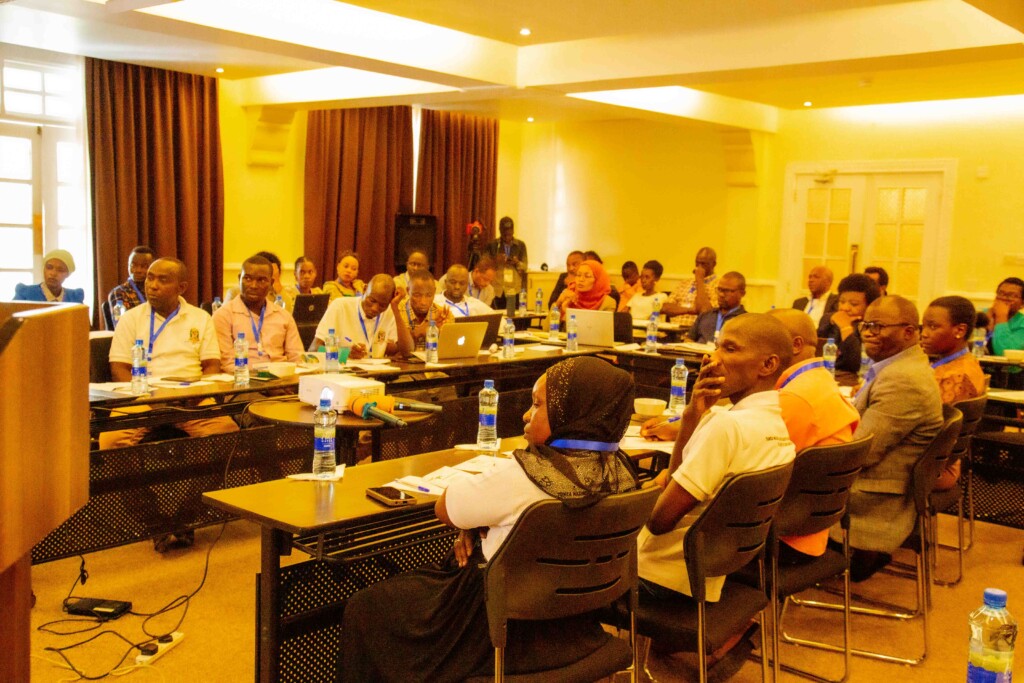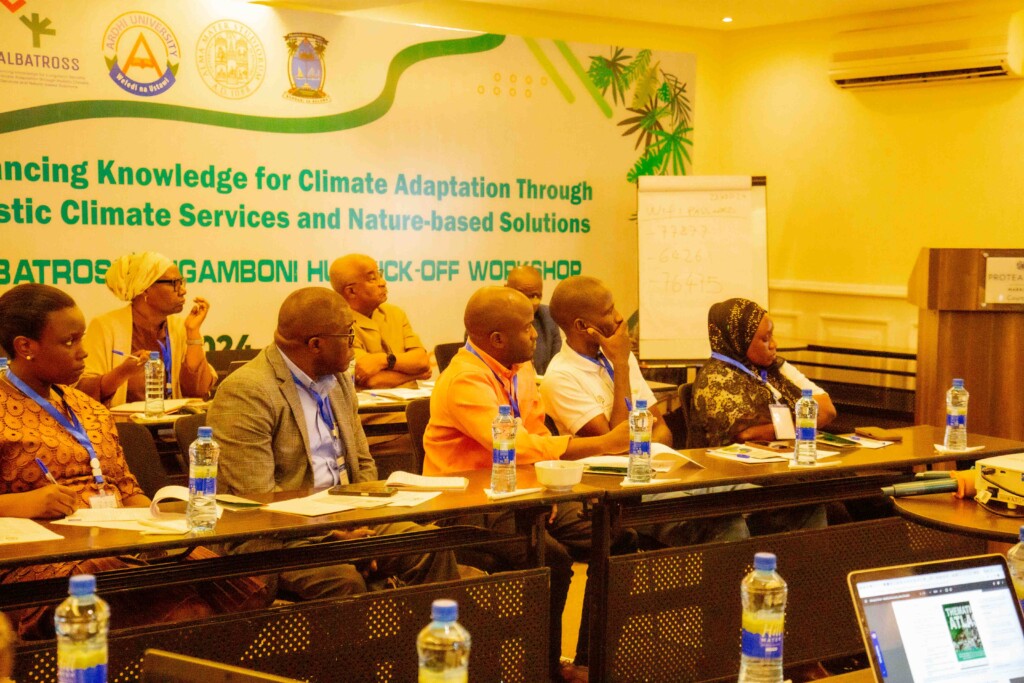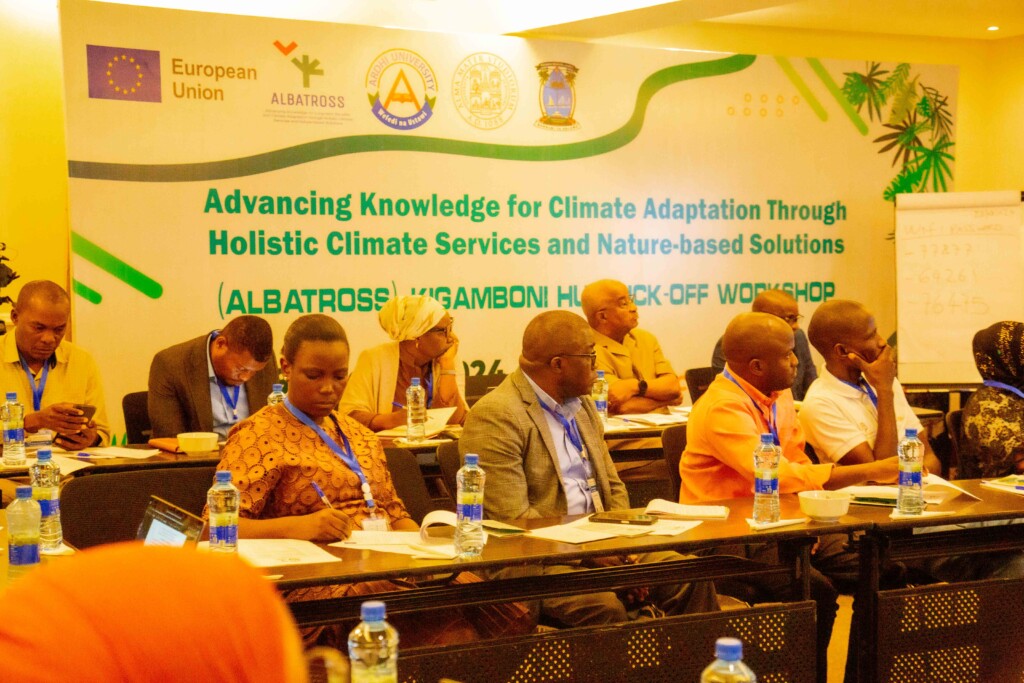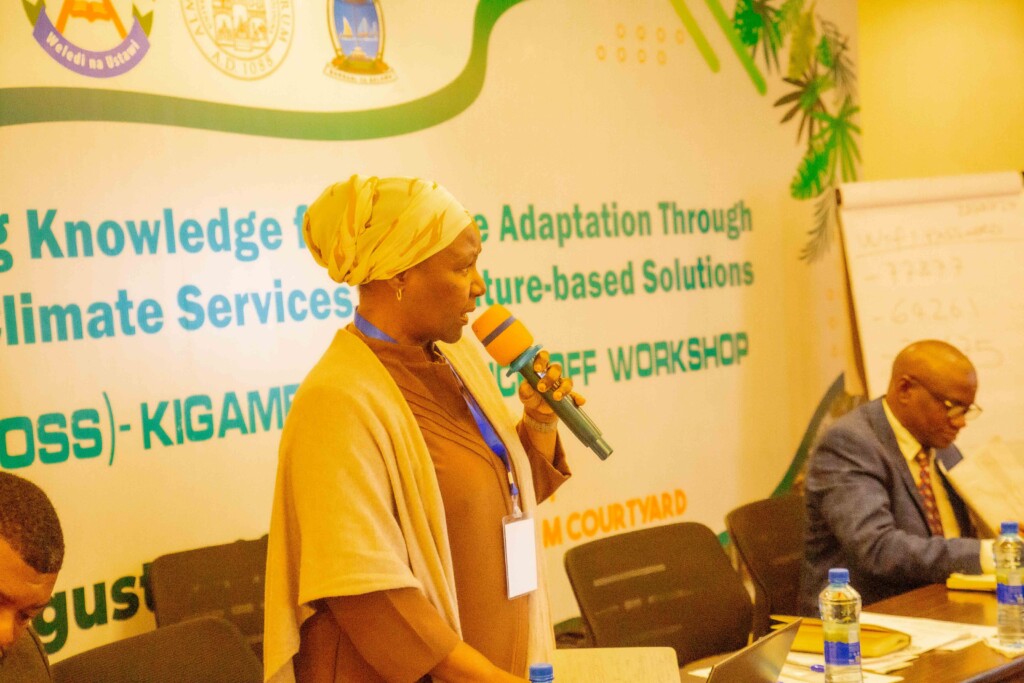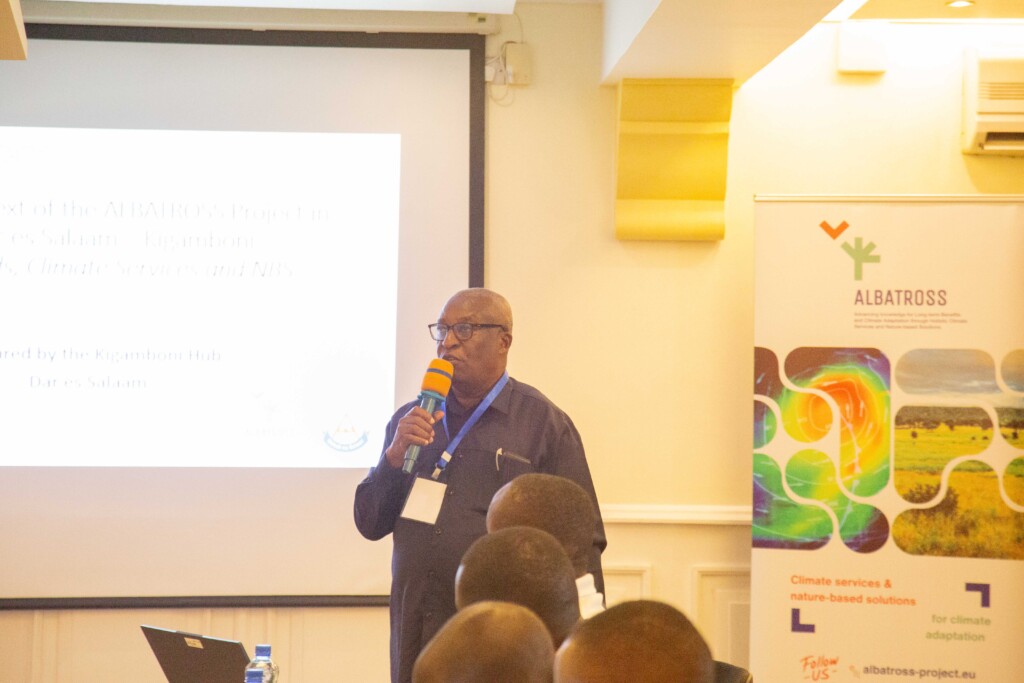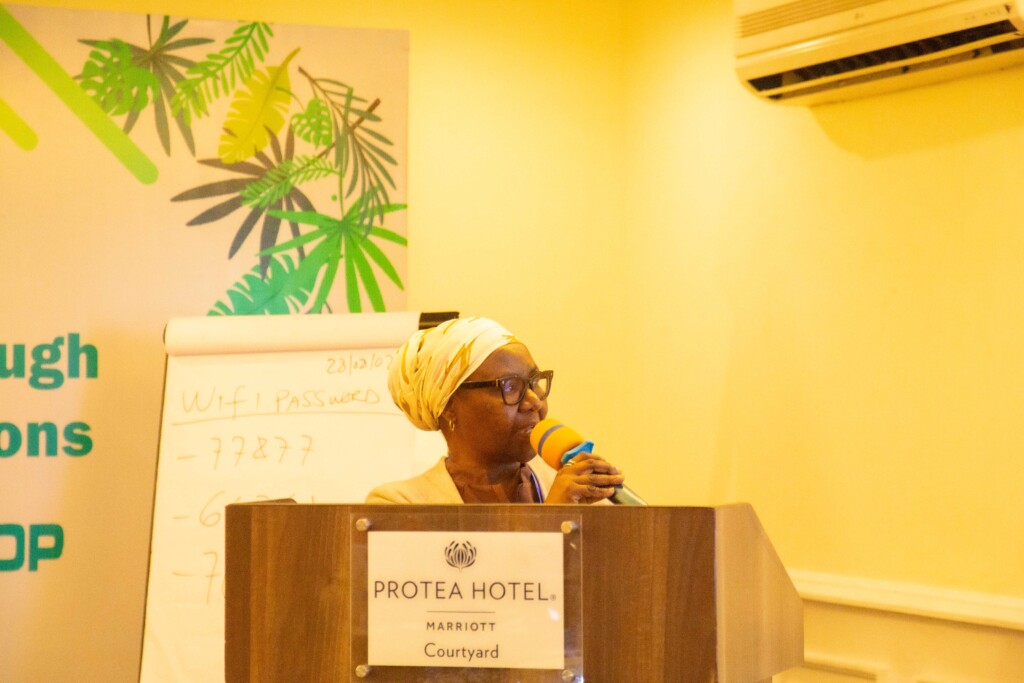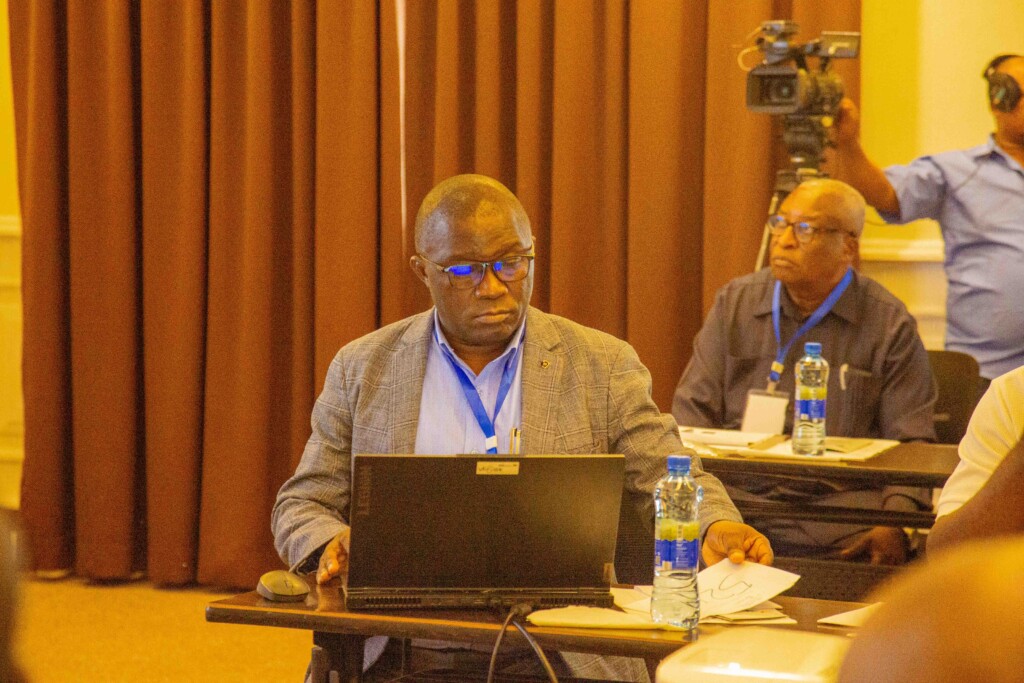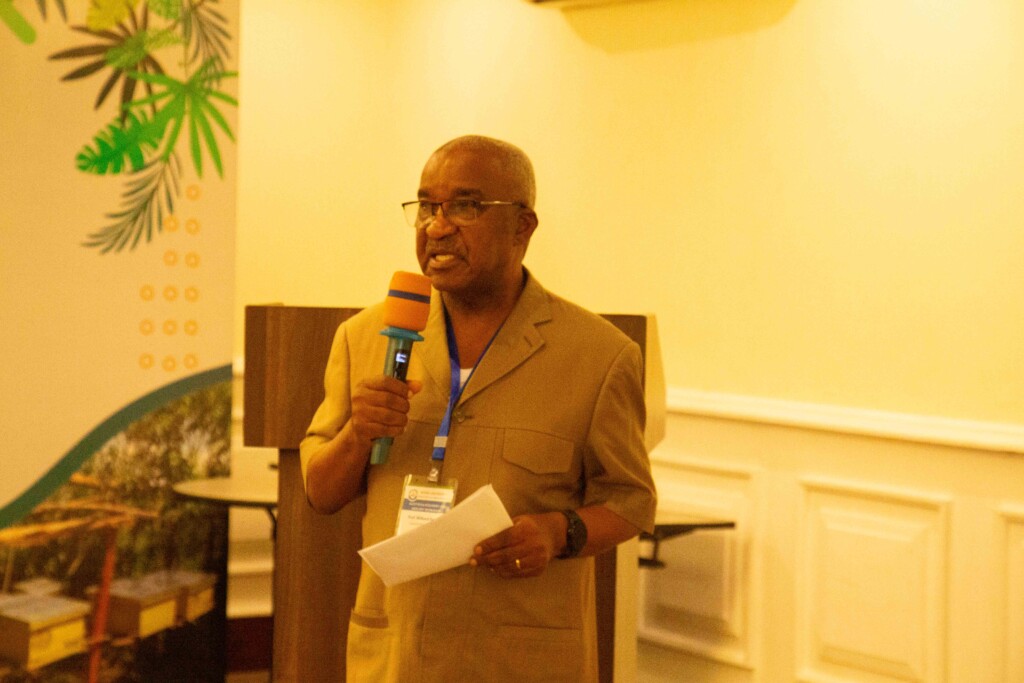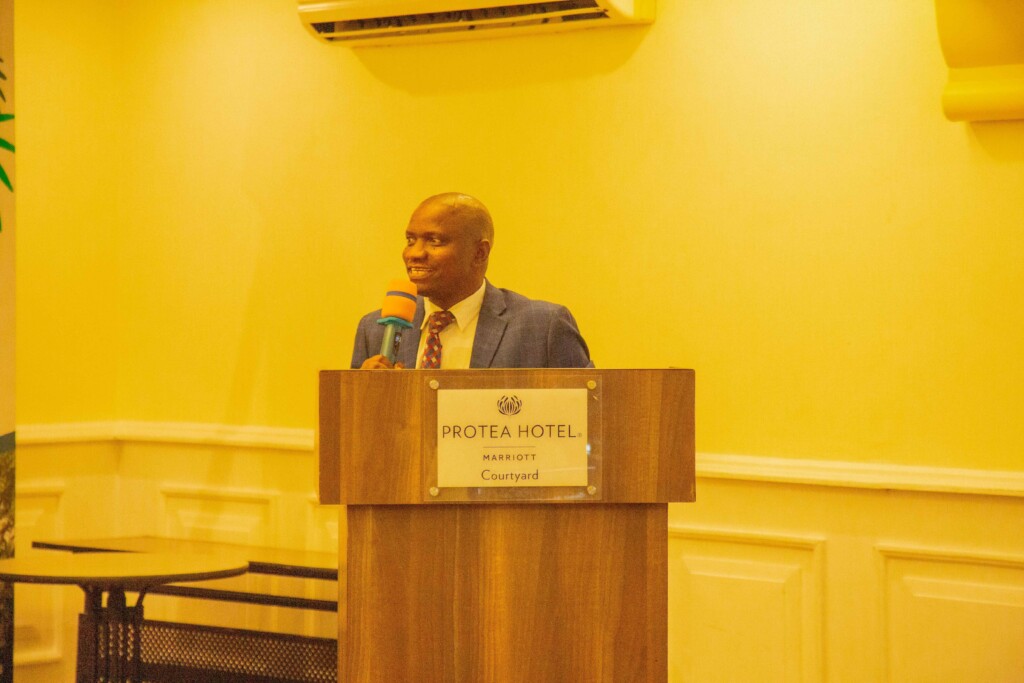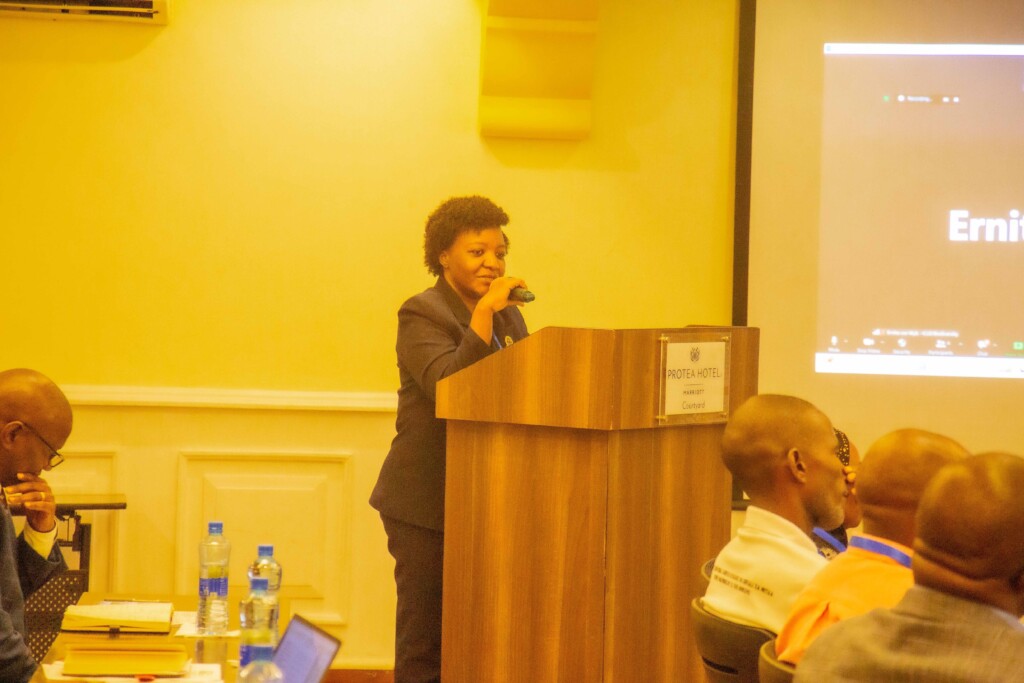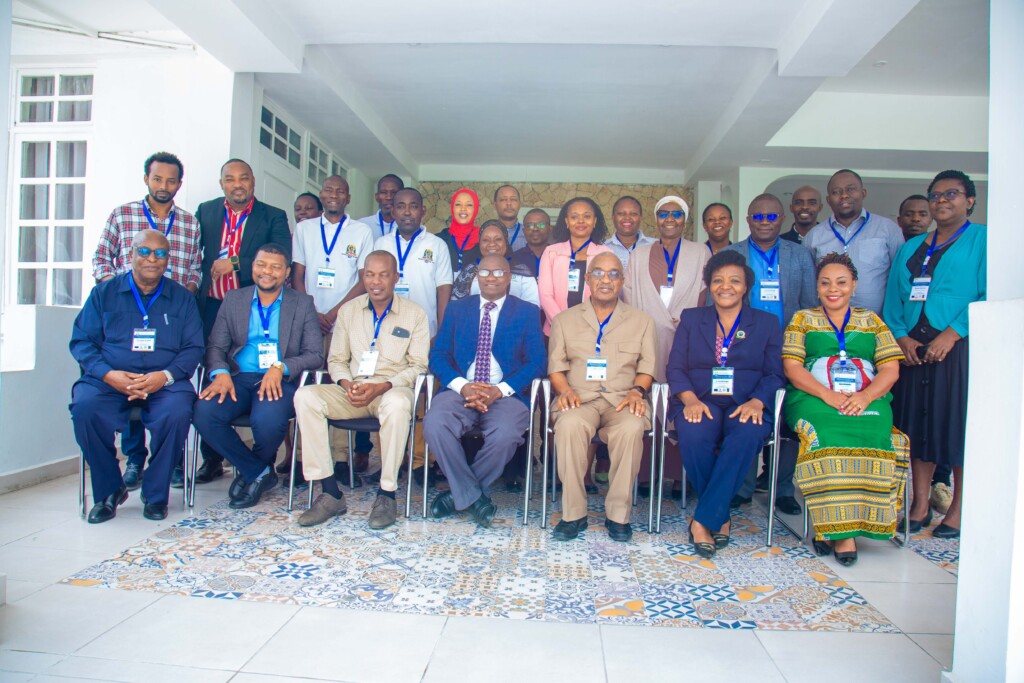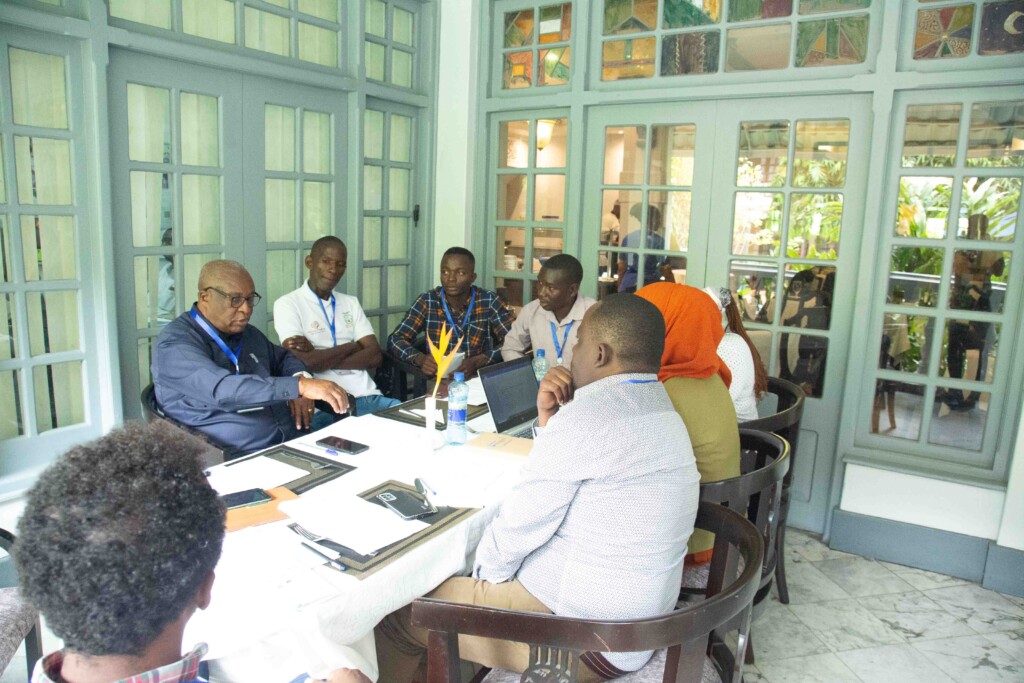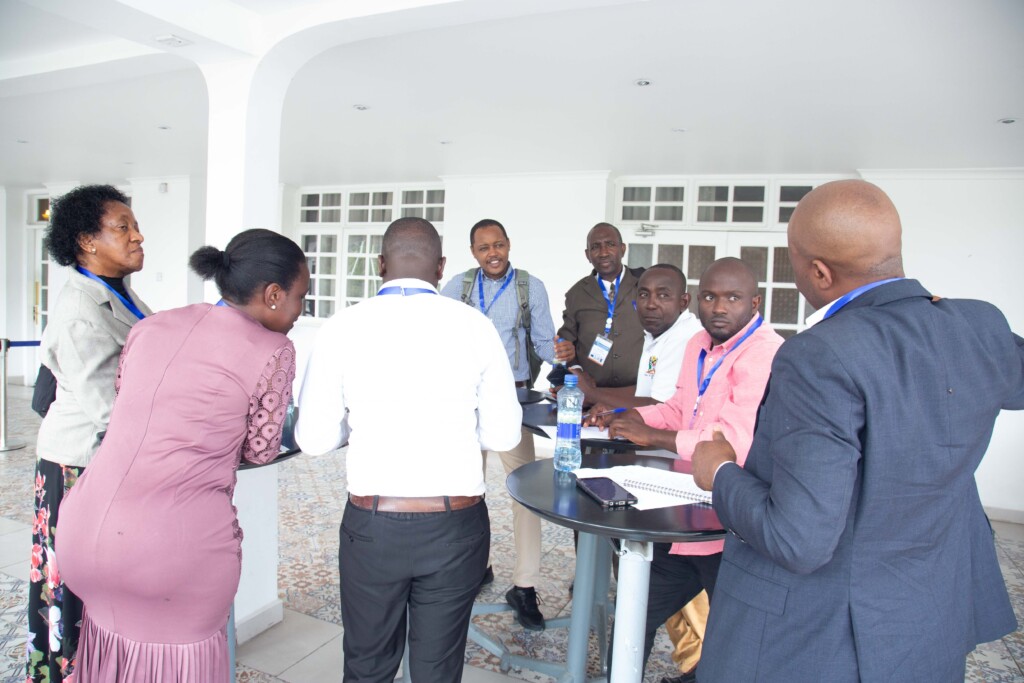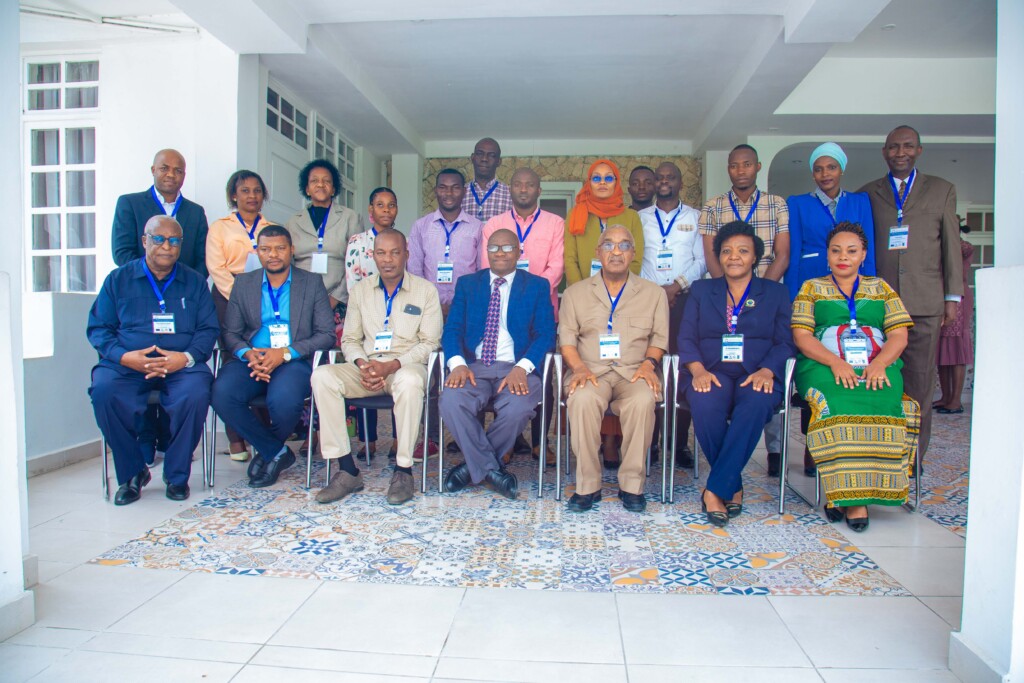The Kigamboni Hub in Tanzania begins its journey with ALBATROSS
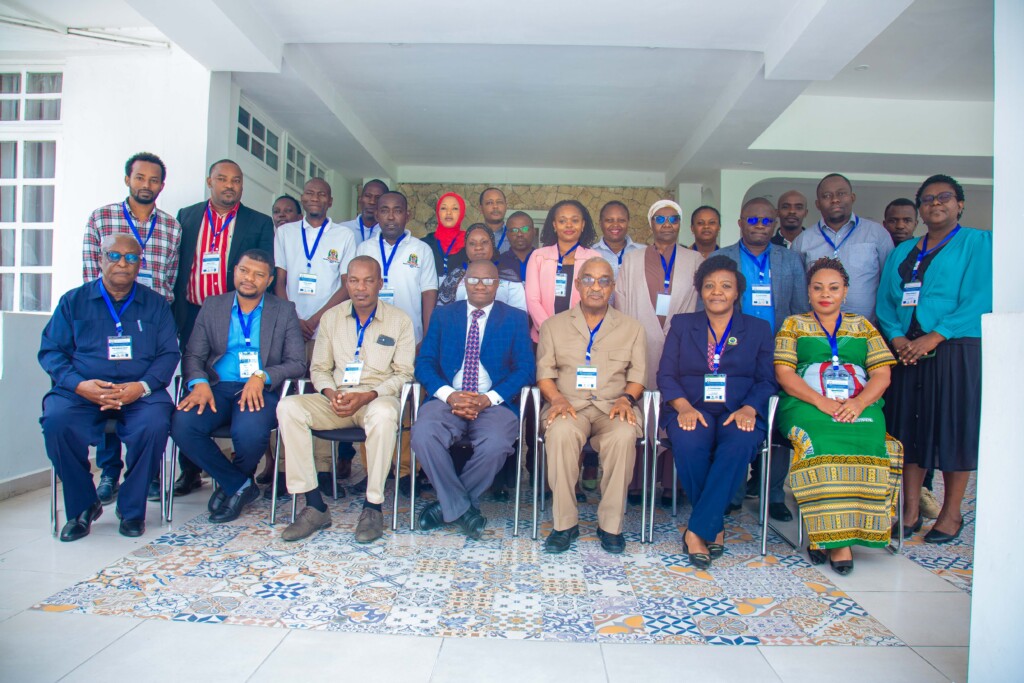
ALBATROSS Kigamboni hub held its kick-off meeting today, 29th August 2024, at Protea Hotel Dar es Salaam, Courtyard, Tanzania. The objectives of the workshop were to: introduce the research project to stakeholders and make them aware of what the project team will be doing and the expected collaboration; emphasize the crucial role of stakeholders’ engagement and interest in the project’s success; share existing knowledge of climate change services and NBS; seek awareness on existing policies and practices to identify which ones are missing and those that need to be revised.
The meeting was graced by the Deputy Director–PO RALG (TAMISEMI) as the guest of honour and attended by 46 participants from the community, local and central Government, Government Ministries, Parastatal Organizations, Private Companies, NGOs and CBOs. These came from various institutions and included the Deputy Mayor of Kigamboni Municipality, local leaders from Mjimwema and Vijibweni communities, representatives from the Kigamboni community group (VIWAKA), Council and officials from the Department of Environment, Fisheries, and the Fisheries Institute. In attendance also were representatives from the Ministry of Natural Resources and Tourism, NEMC, Tanzania Meteorology Authority (TMA), Jane Goodall Foundation, University of Dar es Salaam (IDS and IRA) and staff from Ardhi University, besides the project team members. Attending online were also stakeholders from UNIBO and ICLEI.
Professor Kombe welcomed the participants and shared the inspiring vision of the project. He informed them that at the end of the project intervention, the goal is to inform policy and practice and seek awareness for scaling climate services and NBS. He noted that their participation in the workshop, their views, knowledge, experience, and expertise will provide a foundation for the implementation of the project. He stressed that their collaboration throughout the project would be crucial because the intervention was action-oriented, with the potential to make a significant impact. Prof Laura presented the background of the Albatross project, the Approach, methodology and expected results. Dr Ernita shared her experience in the implementation of International and local experience of CS and NBS, giving context to Dar es Salaam and South Africa. Dr Guido and Dr Tatu shared with participants the context of the ALBATROSS Project in Dar-Hazards, Climate Services, NBS, and Adaptation Measures, highlighting the potential transformative impact of the project.
In his opening remarks, the Guest of honour thanked the participants and the team from Ardhi University for organising the workshop and conceptualizing the project. He noted that climate change issues should concern everybody and the presence of such a wide range of stakeholders shows the unquestionable concern and need to rethink the interventions, processes, and practices we have variably applied to address and deal with increasing threats from climate change. He further noted that Dar es Salaam, like many other urban areas in the country, has been experiencing increasingly climate change-related risk hazards such as floods, landslides, heatwaves, sea level rise and drought. The severity of these risk hazards has been increasing persistently over the last decades. Participants were reminded that their presence in the workshop was significant and their contributions would be of value because:
- the Central Government, Municipalities and local communities are expected to swiftly act and provide viable and practical solutions to the climate change-related hazards confronting them;
- the future of the civilization achieved over the last sixty years, including costly investments in technical infrastructure such as roads and bridges, is under increasing threat.
- the future of our cities and the bulk of urban residents, especially the poor living in low-income informal settlements, is at stake. Every year, floods erode their hard-earned assets and livelihoods; some have lost family members and friends.
The guest of honour also recognized and acknowledged the intersection of climate change, informality, and rapid urbanization that accentuate vulnerability to climate change. He was glad that the ALBATROSS Kigamboni hub focuses on climate services and nature-based solutions. He hoped that the collective engagement would provide important contributions necessary to support our country in achieving the SDGs, especially Goals 11 (sustainable cities and 13 (climate change). He pledged that PO-RALG would collaborate and support the project. With the facilitation of Prof. Kyessi, the workshop participants shared their rich experiences and concerns regarding climate hazards in Kigamboni and Tanzania, at large. They also shared their knowledge of existing climate CS and NBS, opportunities and challenges. Emerging issues evolved around the need for conservation and restoration of biodiversity, sustainable livelihoods, information sharing, policy concerns and strengthening coordination among actors, among many other aspects. Collective efforts were applauded and participants showed keen interest to collaborate and offer support in the implementation of the project. The workshop was closed by the Deputy Mayor, Kigamboni Municipality who appreciated the ARU team for organising the workshop and the active engagement from participants. He pledged that Kigamboni municipality would support the implementation of the project.
.
